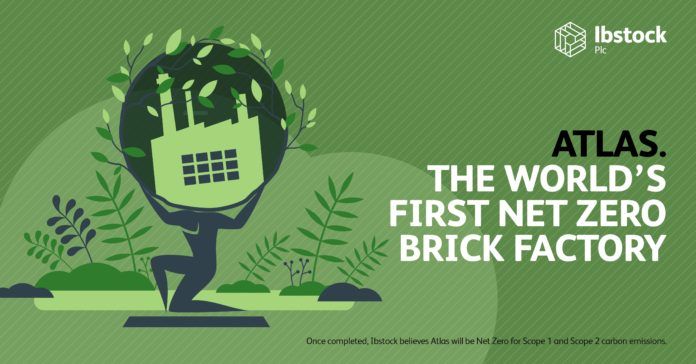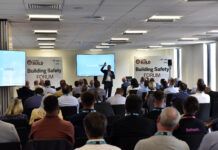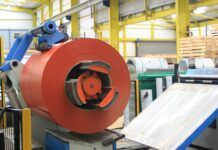
Ibstock plc is making a major investment in its Atlas site in the West Midlands to pilot operational efficiencies which could lead it becoming the world’s only Scope 1 & 2 net zero brick factory.
A combination of reduced process emissions and greater thermal efficiency will cut the carbon intensity of bricks produced at the Atlas site by 50% compared to the existing factory. The remaining emissions will be offset using high quality emissions reduction projects.
The investment marks the next stage of the group’s Sustainability Roadmap to 2025, which sets out ambitious decarbonisation plans.
The new Atlas investment will be net zero for Scopes 1 & 2 emissions; Scope 3 will be addressed later as part of the Group’s longer-term sustainability strategy. To achieve its ambitions, Ibstock is utilising a standard methodology that aligns with the UK Government’s Industrial Decarbonisation Strategy.
Ibstock calculates that its net zero aims for Atlas will primarily be achieved through a rapid reduction in carbon emissions from the production process through significantly improved thermal efficiency, on-site renewable electricity generation and renewable energy procurement.
For production from Atlas to reach net zero, the remaining emitted greenhouse gases will be offset through carbon credits or sequestration through rewilding or carbon capture and storage. Over time, Ibstock will reduce the offset proportion further by the adoption of additional emissions reduction measures.
National and regional impact
Furthermore, the investment in Atlas will bring significant benefits to the local economy in terms of employment, local suppliers, opportunities and skills. It is expected that the renovated factory will support 50 highly skilled manufacturing and engineering jobs.
Next stage in the net zero journey
Commenting on the investment plans for the Atlas Factory, Joe Hudson, chief executive officer of Ibstock, said: “The net zero journey is one we share with our customers. We have seen a transformational shift in attitudes from all our key stakeholders; and there is a ‘sea-change’ in how our customers, and, in turn, their customers, view environmental issues.”



